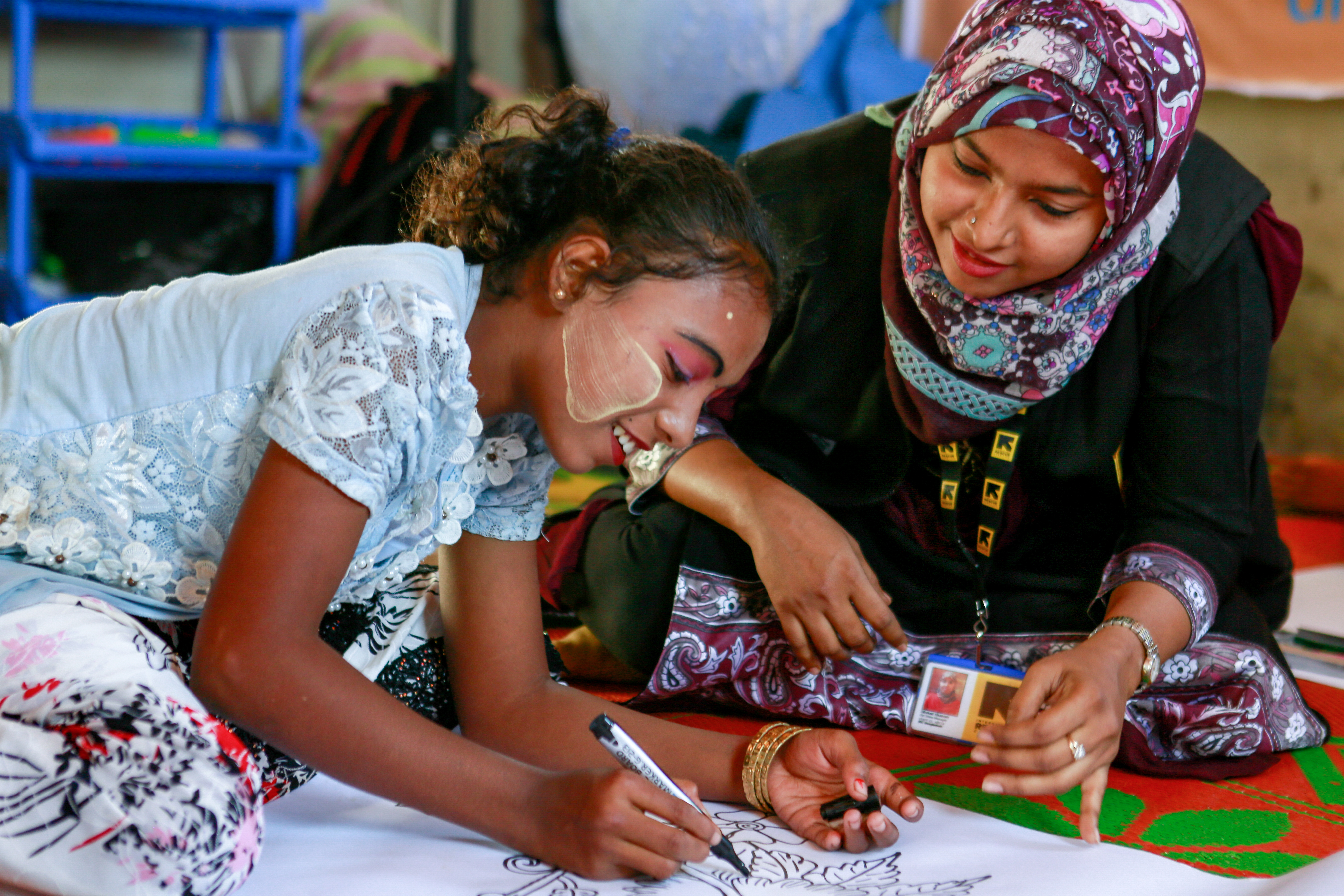

Education
Education Research in Conflict and Protracted Crises (ERICC)
Bangladesh, Lebanon, Jordan, Myanmar, Nigeria, South Sudan, SyriaNews
As a part of ERICC’s Cohort 1 countries’ portfolio — including Cox’s Bazar - Bangladesh, Jordan and Nigeria — here are the latest publications:
- From evidence to practice: The case of education in an emergency context – Cox’s Bazar
- ERICC Research Agenda for Cox’s Bazar, Bangladesh
- Taking stock in Jordan: The evidence landscape and gaps in Jordan’s educational response to the Syrian refugee crisis
- ERICC Research Agenda for Jordan
- The Evidence for Improving Education in Conflict-affected Areas of Nigeria
- ERICC Research Agenda for Nigeria
About ERICC
Education Research in Conflict and Protracted Crisis (ERICC) is a three-year Education in Emergencies (EiE) research programme funded by the British Foreign, Commonwealth and Development Office (FCDO). Countries in focus include Bangladesh (Cox’s Bazar), Jordan, Lebanon, Myanmar, Nigeria, South Sudan and Syria, and the programme is comprised of four main components:
1) Research on the most effective approaches to education in conflict and protracted crisis,
2) In-Country Operational Support
3) Promoting research uptake across FCDO and the international community, and
4) Knowledge Systems Strengthening
The ERICC consortium and approach to research
Leading ERICC components 1 & 2, and coordinating closely with leads for components 3 & 4, is the ERICC Research Programme Consortium (RPC), a global research and learning partnership that strives to transform education policy and practice in conflict and protracted crisis around the world — ultimately to help improve holistic outcomes for children — through building a global hub for rigorous, context-relevant and actionable evidence base.
ERICC RPC seeks to identify the most effective approaches for improving access, quality, and continuity of education to support sustainable and coherent education systems and holistic learning and development of children in conflict and crisis. ERICC aims to bridge research, practice, and policy with accessible and actionable knowledge, at local, national, regional and global levels, through co-construction of research and collaborative partnerships.
The ERICC RPC is led by the International Rescue Committee (IRC), and expert partners include Centre for Lebanese Studies, Common Heritage Foundation, Forcier Consulting, ODI, Osman Consulting, Oxford Policy Management, and Queen Rania Foundation. During ERICC’s inception period, NYU-TIES provided research leadership, developed the original ERICC Conceptual Framework and contributed to early research agenda development.
ERICC RPC is committed to four primary principles for conducting rigorous research:
- Having developed and using ERICC Conceptual Framework to conduct systematic evidence reviews, evidence building and evidence based decision-making
- Developing contextual understandings of the Political Economy of Education of different conflict and crises settings
- A co-constructive approach to building research agendas through stakeholder engagement from the start for evidence use and evidence uptake
- Applying a research methods framework to build evidence in a systematic and rigorous way
ERICC publications
At the end of ERICC’s inception year the RPC published the ERICC Inception Report in March 2023. The report provides an overview of the consortium, the ERICC theory of change, the ERICC Conceptual Framework, process for developing country research agendas and much more.
Read the ERICC Conceptual Framework developed by NYU Global TIES for Children during the Inception Period, and interact with the ERICC Conceptual Framework - interactive version.
As a part of ERICC’s Cohort 1 countries — including Cox’s Bazar - Bangladesh, Jordan and Nigeria — the ERICC RPC has also just published the following publications:
- Cox’s Bazar:
- Jordan:
- Nigeria:
Also soon to be published:
- Cox’s Bazar - Bangladesh Data Systems Review
- Jordan Data Systems Review
- Nigeria Data Systems Review
- South Sudan Evidence Review
- South Sudan Data Systems Review
- Syria Evidence Review
- Syria Data Systems Review
- Global Evidence Review
- Global Research Agenda Overview
- Global Data Systems Synthesis
- Country Study Concept Notes
- Political Economy Analyses
And much more, stay tuned!
ERICC Leadership
ERICC Research Programme Consortium Leadership
To be announced, ERICC Research Co-Director
Silvia Diazgranados Ferráns, ERICC Research Co-Director (IRC)
Marie-France Guimond, ERICC Programme Director (IRC)
Oladele Akogun, ERICC Research Director - Nigeria & South Sudan (IRC)
Robert Palmer, ERICC Research Director - Jordan (QRF)
To be announced, ERICC Research Director - Bangladesh & Myanmar
Cathrine Brun, ERICC Research Director - Lebanon (CLS)
To be announced, ERICC Research Director - Syria
Tim Kelsall, ERICC Senior Policy Lead (ODI)
Maku Obuobi, ERICC Deputy Director & Fund Manager (IRC)
ERICC Technical & Advisory Board
Larry Aber
Co-director, NYU Global TIES for Children
Modupe Adefeso-Olateju
Managing Director, TEP Centre
Friedrich Affolter
Global Education Cluster Co-Coordinator
Michelle Brown
Global Education Cluster Co-Coordinator
Thomas Dreesen
Education Research Manager, UNICEF Innocenti
Sarah Dryden Peterson
Associate Professor, Director, REACH, Harvard University
David Evans
Senior Fellow, CGD
Loise Gichuhi
Education Economist and EiE Expert, University of Nairobi
Emma Gremley
Senior Director, Education Technical Unit, IRC
Sarah Kabay
Education Program Director, Innovations for Poverty Action
Graham Lang
Chief of Education, Education Cannot Wait
Rebecca Telford
Education Section Chief, UNHCR
Tejendra Pherali
Professor of Education, Conflict and Peace, UCL
Anna-Maria Tammi
Technical Lead, Education in Emergencies - Conflict-Affected Fragile States, Global Partnership for Education Technical Lead, GPE Education in Emergencies CAFS
Leonard Wantchekon
Professor, Princeton University
Nina Weisenhorn
Deputy Director, Office of Social Services, USAID/Afghanistan
The Airbel Impact Lab at IRC is a team of researchers, strategists and innovators committed to the accelerated design, rigorous evaluation and cost-effective scaling of the most impactful solutions supporting people affected by crisis.